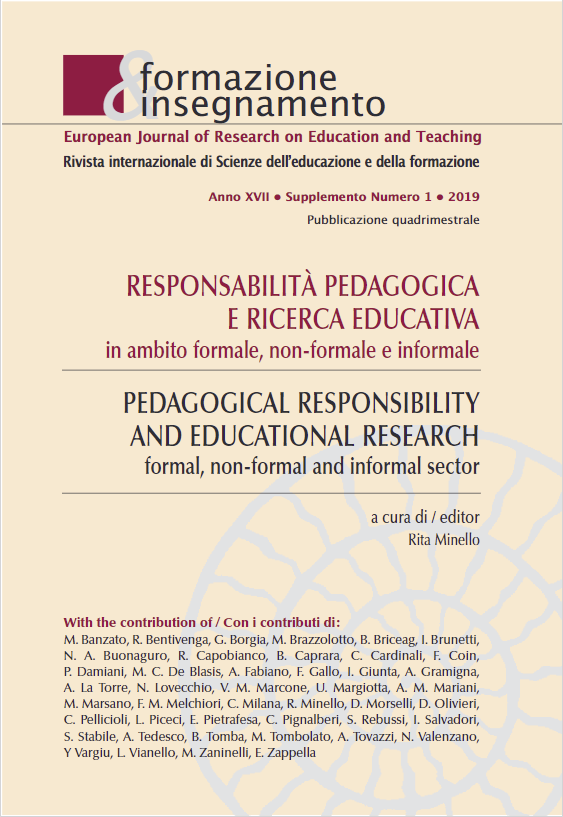The use of simulation models for the construction of counterfactual thought in training contexts
Abstract
In this paper we discuss the potential effectiveness of the use of simulation models for the construction of counterfactual thought in training contexts. Counterfactual mental experiments represent an epistemic practice which belongs to the scientist’s habitus. Therefore, it is important for students to acquire it. In the first part the role of counterfactual mental experiments is presented from an epistemological standpoint. Then counterfactual reasoning is described as an epistemological obstacle. Finally, we explore the didactic potentialities of simulation models in fostering the development of counterfactual thought.
Downloads
Published
How to Cite
Issue
Section
License
Copyright (c) 2019 Pensa MultiMedia

This work is licensed under a Creative Commons Attribution 4.0 International License.
Formazione & insegnamento is distributed under Attribution 4.0 International (CC BY 4.0).
For further details, please refer to our Repository & Archiving Policy, as well as our Copyright & Licensing Terms.





